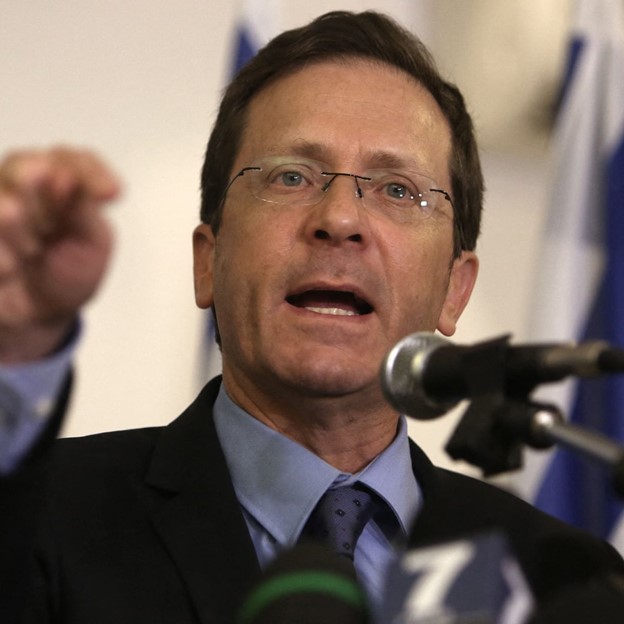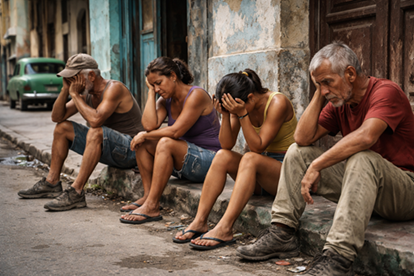
“They could have risen up, they could have fought against that evil regime.”
— Israeli President Isaac Herzog
Ever so often I will read and I will hear things in the news which go into one ear and then go out through the other. I don’t always listen to news broadcasts fully focused, or with preconceived ideas, especially in instances where the item of news is brand new to me or one that I have some vague knowledge of or interest in. If it is something that does not affect me directly, like so many items of news, it becomes background noise. But, conversely, what tends to pique my interest is when an item of news raises questions in respect to basic logic or facts.
I tend to become “riled up” when the matter at hand, which demands much thought and discussion, is dealt with in a hasty, cavalier, “matter of fact”, or even in an imperious manner. Such was the case with respect to a statement made to the press by Israeli President Isaac Herzog in the aftermath of the horrific Hamas attack on innocent Israeli citizens, and yes, also on Palestinian civilians on October 7, as was alluded to at the beginning of this piece.
It was Marti Noxon, an American television writer and film director, who stated that “The problem with generalizations and judgments, the words we hurl as insults, is that they deny our humanity and our stories.” I found her words to be quite apropos where Mr. Herzog’s statement to the press was concerned. It was clear, at least to me, that he was laying the blame for the atrocities committed by Hamas, recently, squarely at the feet of all the Palestinians living in Gaza.
And so, if I may be permitted to extrapolate, he seemed to have been implying that what the Israeli military was about to do in Gaza, all the Palestinians domiciled there had it coming to them. In other words, they all approved of what Hamas did and were, as a consequence, culpable. And this is one of the quirks that I find with liberal democracy, noble as it is. Although a party might win the majority of the popular vote, receiving the right to represent all citizens, an electoral count does not erase the opinions or the will of the minority. There were Palestinians who had not voted for Hamas and, more than likely, have not changed their views on Hamas after all these years.
On January 25, 2006, legislative elections were held in the Palestinian territories to elect the second Palestinian Legislative Council (PLC), the legislature of the Palestinian National Authority (PNA). Hamas won 44.45% of the vote, picking up 74 of the 132 seats. The Fatah party won 44.43% of the vote, obtaining 45 seats; then came the Popular Front for the Liberation of Palestine (PFLP) with 4.25%; then The Alternative party with 2.92%; then the Independent Palestine party with 2.72%; and then the Third Way party with 2.4% of the votes. Although no percentage votes were registered for Independents, they picked up 4 seats.
Those were the last contested elections to be held before Hamas took over the Gaza Strip in 2007. No new elections have been held since. And so, when President Herzog spoke about overthrowing Hamas, with such varied political opinions and political clout existing among Palestinians, how did he expect the people were to have done that? If I recall, Israelis protested, en masse, in their streets, with 10,000 reservists resigning, over Prime Minister Netanyahu’s tampering with laws having to do with the power of the Supreme Court without success. Because Prime Minister Netanyahu prevailed did it mean that all of the Israeli citizenry supported the change voted in by the Knesset? In terms of the current conflict there are Jewish people who are protesting the treatment of Palestinians by their own Government, both in and out of Israel. Ofer Cassif, a member of the Knesset, is one among the voices of dissent. And so, why blame the man in the street in Gaza for what Hamas has done and continues to do? This is, as I said, a quirk of the democratic ideal.
It was Marvin Simkin who stated that: “Democracy is not freedom. Democracy is two wolves and a lamb voting on what to eat for lunch. Freedom comes from the recognition of certain rights which may not be taken, not even by a 99% vote.”
Liberal democracy does, unfortunately, provide nefarious politicians with the opportunity to employ “bait and switch” tactics. They use democratic means to gain power and once they have achieved it they use that power to destroy the very democratic ideals which gave them voice, which gave them vigour, and which gave them victory. This appears to be the case with Hamas in Gaza, with them not having entertained elections since 2006. There are examples from history, but one only needs to recall Adolf Hitler’s rise to power in Germany with his Nazi surrogates.
Again, former U.S. President Donald Trump, should he win the presidency in 2024, will raise his hand and pretend to swear allegiance to the Constitution, as he had done before, until he is able to suspend it and then destroy it along with all the institutions that have been established to protect and defend it. This he has promised to do, publicly. Democracy’s greatest strength, therefore, is also its greatest weakness. Outside of the fact that other militants operate within Gaza, who are not a part of Hamas, suggests a lot in respect to the assumed monolithic influence of Hamas over the populace. And it ought not to be assumed that all Palestinians in Gaza actively support the other groups either. And so, I take issue with President Herzog on this matter.
President Herzog’s statement, it turns out, was mild in comparison to that made by an unknown army official who is reported to have said: “Gaza will eventually turn into a city of tents. There will be no buildings”, and that made by an elected right-wing lawmaker who, allegedly, called for the usage of nuclear weapons in response to the attack made on Israel by Hamas.
In an article published by the Business Insider – India, on October 16, the story was told of Rami Aman who knows what it’s like to stand up to Hamas, while living under its rule in Gaza, and what it is like to seek peace with Israeli civilians. Such activism got him tortured and pushed into exile. Not knowing of the existence of this article before I had arrived at my own conclusion, I found the following words in the piece to be as intriguing as they were affirming:
“In 2020, Aman, a leader of the Gaza Youth Committee who now lives in Cairo, was thrown into a jail in Gaza City for organizing a cross-border video call. ‘Skype With Your Enemy,’ it was called — an effort to bypass hostile political leaders on both sides and build relationships between regular people in Israel and Palestine. Aman, jailed, was blindfolded and placed in stress positions for weeks at a time and ultimately coerced into leaving the Palestinian territory.
So when Israeli President Isaac Herzog this week chided residents of Gaza for not overthrowing Hamas — “They could have risen up, they could have fought against that evil regime,” he said — Aman took umbrage. Not only did he do just that, at great personal cost, but thousands of other Palestinians defied the militant group, protesting Hamas’ rule and its bungling of basic governance; as the Associated Press reported, ‘Hamas’ security forces quickly dispersed the gathering.’”
In closing, every coup d’état requires unified will, careful planning and adequate resources. All those factors would entail an accurate assessment of the opposition, including any external support that the regime might have, which happens to be the state of Iran, and of the kind of support that the plotters of the coup would hope to receive from within Gaza and, externally, from the international community. Furthermore, the vicious manner in which the attack against civilians was carried out by Hamas poses the same kinds of concerns for people seeking to overthrow them and for their families.
More than half of Gaza’s over 2 million people live in poverty, and nearly 80% of the youth are unemployed. This is the sort of information President Herzog should have obtained and considered before making his pronouncement. Israel has one of the most effective intelligence agencies in the world. Perhaps he did not consult with Mossad about the true state of affairs in Gaza. Oh, the unnecessary headaches brought on by sweeping generalizations!



